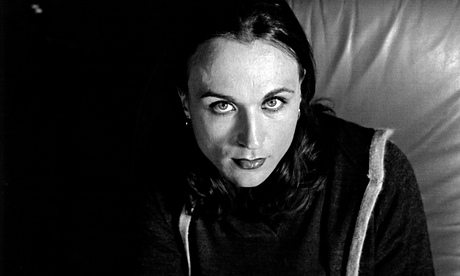
Go to any big house night today and there’s a fair chance that you’ll come away with the image of muscle lads in plunging vest tops, students selfie-ing in front of the speakers, and a million Disclosure remixes imprinted on your hangover. As the genre continues to commodify itself faster than you can say Duke Dumont, these events can often feel tediously hetero and geezered out, a million miles away from house music’s roots in queer club culture, when clubs were spaces for activism and social change as well as escapism.
That’s the bone that transgender DJ and producer Terre Thaemlitz has to pick with today’s house music boom. “It seems that the queer factor of today’s house events is really low,” she says. “If you’re in the US and it’s a straight, white club then it’s just a fucking nightmare. These events are the celebration grounds for heteronormativity. There is a historic connection between queerness and deep house, and also things like transgenderism and vogue, that, to me, was really important – and it’s utterly absent.” It’s not just about the music having broader appeal, either: “It has to do with this cultural shift away from the necessity to actually have clubs function as safe spaces for different types of sexual enactment.”
For Thaemlitz, the common view of the dance music scene as an apolitical, hedonistic space is mistaken. Born in 1968, she moved from Missouri to New York in the 80s to study fine art but became a DJ immersed in the queer house scene, where she saw first-hand how clubbing stemmed from a place of frustration and struggle. Her outlook was shaped at NYC transsexual hangout Sallys II, where she became a resident, and which served a purpose beyond the throb of the dancefloor. It was a “site of education, where people could share information about their transitioning experiences. There were times when you really learned things on a political level, on a social level – that’s what’s interesting,” she explains. “Music is usually one of the least interesting things about clubs.”
Thaemlitz is something of a true renegade in modern club culture. She tackles themes that are usually off limits in electronic music, eschewing conventional notions of ‘having the night of your life’ and instead confronting issues of gender, sexuality, race and class, often in lipstick and four-inch heels. Nineteen albums and multifarious monikers into her 20-year career, she’s constructed a political discourse that’s hard to find anywhere else in dance music today. Her 1995 album Soil, for example, features an account of domestic abuse over an electroacoustic soundtrack, while reflections on concerns such as queer identity and acceptance weave through Queerifications & Ruins, a clubbier 2013 remix compilation. And then there’s her 2012 album, Soulnessless, featuring one single track of almost 30 hours in length, formatted to an SD card and accompanied by a 165-page booklet of liner notes. This is what she calls “culture jamming”, her attempt to “disrupt passive listening”. Julio Bashmore, it is not.
Much of the interest in Thaemlitz as a dance music outsider, though, froths around Midtown 120 Blues, her 2009 album under her deep house alias DJ Sprinkles. It was respected dance music website Resident Advisor’s record of the year and was re-released this May. Instead of hooks, there’s a lengthy opening voiceover, which questions the accepted notion of what house is (“the answer is always some greeting card bullshit about life, love, happiness…”) and goes on to highlight the contexts from which deep house emerged in 1970s and 80s New York, be they transgendered sex work, drug and alcohol addiction, queer-bashing or the HIV crisis. It also takes aim at how nostalgia romanticises early house DJs’ influence when many of them, Thaemlitz included, weren’t that well known at the time.
Not that her willingness to highlight the dance industry’s failings has stopped the number of her DJ bookings from rising steadily. On the day we meet, DJ Sprinkles is due to play the Thunder night at Dalston’s Dance Tunnel, an event that sold out in four minutes thanks to a diverse mix of discerning east London gays, Shazam-ready house heads and disco dads. Despite living in Tokyo for the past 13 years, she’s gone from playing in the UK once every three years to being booked three times a year.
The gender lines are blurred –Thaemlitz turns up for our interview wearing “boy drag” and suggests that, if pronouns really have to be used, Terre is “she” and Sprinkles is “he”. A fiercely passionate talker, an hour with Thaemlitz is like having a sociology lecture where you can’t fall asleep at the back of the class. My transcript reads like a thesis with sprawling ideas about the mainstreamness of LGBT politics, the complexity of “closets” and the dangers of being marketed as an “elusive artist”, most of which she has written about at great length in essays on her personal website. It makes a change from interviewing DJs who can’t articulate anything much beyond which software package they use.
“I guess the only way I’m really ‘kicking against club culture’ is by actively participating in it while being very clear about my deep problems with it,” she concludes. “And not simply stopping the conversation with, ‘this is all bullshit’.”
DJ Sprinkles plays Simple Things, Bristol, Sat, and Dance Tunnel at Chapter 10 Basement, London, E8, on 7 Nov

